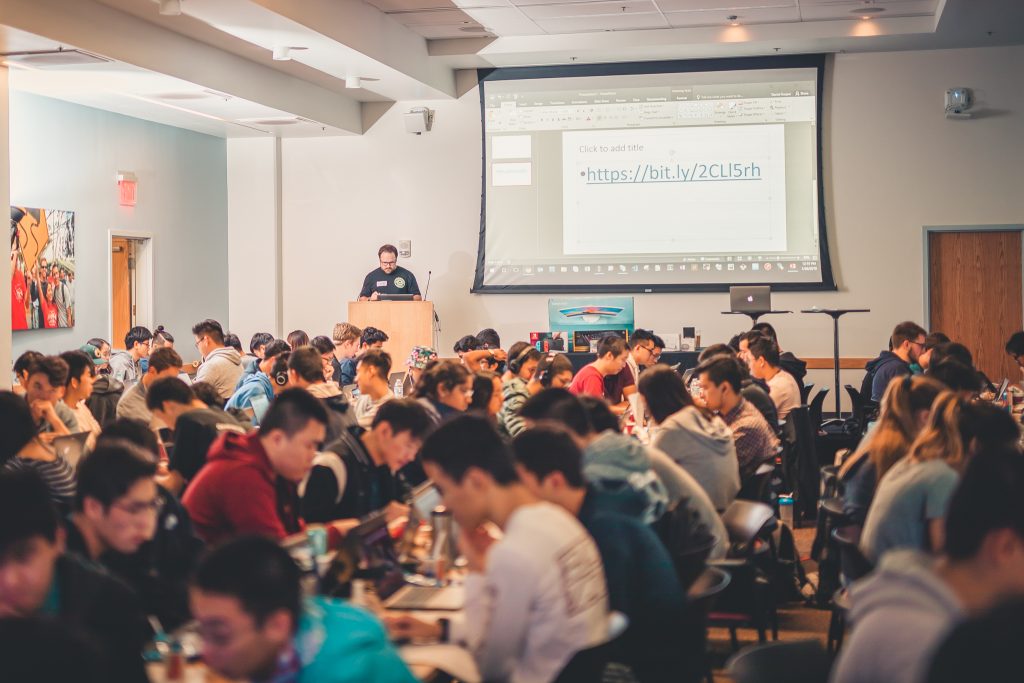Like many technology companies, Webroot is constantly on the hunt for a diverse pool of engineering and technical cybersecurity talent. According to Jon Oltsik, senior principal analyst with Enterprise Security Group, a cybersecurity skills deficit holds the top position for problematic skills in ESG’s annual survey of IT professionals. In fact, the percentage of organizations reporting this problem has jumped more than 10 percent in just three years.
Here are the results from the last 4 years’ surveys:
- 2018-2019: 53% of organizations report a problematic shortage of cybersecurity skills
- 2017-2018: 51% of organizations report a problematic shortage of cybersecurity skills
- 2016-2017: 45% of organizations report a problematic shortage of cybersecurity skills
- 2015-2016: 42% of organizations report a problematic shortage of cybersecurity skills
The time has come for the private sector to take action to help develop the talent pipeline.
Start with real-world simulations
At Webroot, this need for more cybersecurity talent sprouted a partnership with the University of California San Diego Jacobs School of Engineering, which has culminated in an annual Coding Challenge.
The Challenge—presented in the form of a game—is a way for Webroot to impart real-world skills like problem solving, coding, and creative technical thinking onto the students.
The goal of the game is to be the best in the room. For the competitive students, that translated to beating everyone above them on the leaderboard. To do so, the students had to write code to control three characters to capture ghosts:
- A hunter, who worked to reduce ghost stamina,
- A ghost catcher, who trapped and released ghosts,
- A support character who focused on stunning the competition and observing the playing field as a whole.
But, as Daniel Kusper, senior QA engineer at Webroot points out, “it also provides an amazing opportunity for students to ask [industry experts] any and all questions they may have about cybersecurity and software engineering.”
In addition to honing skills like creative thinking and problem solving, students get a glimpse of real-world life for engineers and developers.
Xingyao Wu, a computer science student, said that this type of problem doesn’t have a single, specific right answer. You need creativity to come up with a solution.
“I learned how to solve this problem by thinking outside the box to create new rules or algorithms instead of just following the normal ideas.”
The advantage of real-world practice was not lost on Chris Mayton, another computer science major, either. Chris shared,“In my opinion, what you learn in class is more isolated from the real world; the data is clean and the environment is ready for you to start coding. With hackathons or coding challenges, you have to apply the concepts learned in class—which are big-picture—to real-world situations.”
Ryan Willett, a current Webroot engineering intern, may have put it best. “You need room for personal growth in the computer science field. Few classes give you the liberty to try to fail boundlessly. And there is a lot to be learned in failing. Events like the Coding Challenge help students realize that, sometimes, you’ll start down a route on a project that is very bad. You may have to throw away all your code and start again. Sometimes that’s just what you have to do to get to a workable solution.”
Given the large range and variety of technical employees that volunteered their time, the students got a diverse overview of a day-in-the-life of an engineer. Some students already had a good idea of why they’re interested in the field. Computer science and mathematics double major Guanxin Li said she“joined computer science because [she] felt like it’s really cool to build something with a couple lines of code. That’s so powerful.”

Value in internships
The winners of the event are invited to apply for internship positions at Webroot’s San Diego office. Some of the rock star students from past events have even become full-time employees. These internships provide valuable experience for those who are still figuring out where they want to focus, or what industries to explore further.
Fred Yip, manager of software development and intern manager at Webroot, challenges his interns “to solve real-world problems, and to join the team by participating in the scrum and developer sprints just like full-time employees.”
Will one Coding Challenge solve the industry’s skills shortage? No. But it is a start. And I see many other cybersecurity and tech companies taking small steps that will have an impact on our future workforce. Webroot is also seeking more partnership opportunities with other universities to host learning events, and is even looking to extend its internship program globally.
We should all be excited about the next generation of talent and what they will bring to the industry. Who knows; one of the Coding Challenge participants might someday solve a present-day cybersecurity conundrum.
Advice to students from students
“I learned you really have to focus on small ideas first before implementing something more advanced. When we started, we tried to think about implementing everything at once. But then, where do we start? Think about it as a layer by layer at a time. Build it up.” – Leo Sack, computer science major
“Design what you want to implement before you start implementing. Thinking through the strategies of what each of your ghostbusters should do. Work through each problem step by step. And be patient, definitely be patient.” – Edward Chen, computer science major






